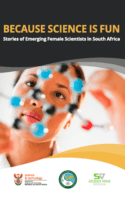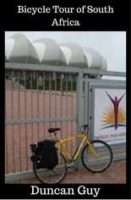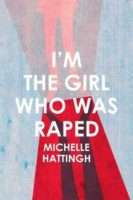This is the story of Shirley Madlingozi who was born in 1968 in Port Elizabeth. She is a single mother and care-giver at a project for children affected by AIDS in a township outside Cape Town. She told her story in 2003:
When my husband Makosi died in 1999, he had been unemployed for five years already . . . it was so sad, I did not even have enough money for his funeral. I had to borrow it and had to pay back a long time. But I still have my beautiful four daughters: Nomtha, Lazola, Honey and Sweety – the smallest was just five months old when her father died. I had no other choice but to move with my four daughters to the township of Masiphumelele, near Cape Town, where my sister Gretta had a job as the secretary of the local primary school.
Gretta has helped us a lot. But I also tried everything to care for my children independently. Unemployment is huge here, and for a long time I couldn’t find anything, although I kept trying. I never gave up, I even did some activities without getting paid. There are enough problems in our township and I believe that we should take responsibility ourselves and should not wait for the government or anybody else to come and fix things for us. What was most obvious to me: There is a lot of sexual abuse – even of children – and many more people are infected by HIV/AIDS than is admitted. In our township of 30 000 people about 25-30 per cent are HIV positive. Through our daycare clinic and the testing of pregnant mothers we know that many are still in stage 1 and 2 of the disease, but that most will become seriously ill in a few years. Imagine – 8 000 deadly sick people in a community of 30 000! Who will care for whom? And for all the children without parents . . .
So I started doing a free first-aid training. And then the one or other neighbor came for advice. I am a good listener and try to support people. Many times it was enough just to listen carefully, as most people, especially women, know what they need and should do, but are just afraid to realize it. After giving such advice for a while, I got a scholarship to be trained as AIDS counselor. I got enough money to pay the fee for the course, but still had to find the money for transport myself. Only a few weeks before the training started, first my mother died and then my father as well. It was such a hard time, but I did not give up. I am very proud indeed that I have passed the examination at the end and received the diploma. I also had support from white people, which I will never forget. I still carry a scar on my leg when as a young girl I was beaten by a white policeman for taking part in a political demonstration. That is so. There are good and less good people everywhere. It has not much to do with skin colour.
A few months later I heard about the plan that a house should be built in Masiphumelele for children who are infected or affected by HIV/AIDS and who have otherwise nobody to care for them. Every Wednesday a group of concerned residents met at our daycare clinic with members of an AIDS organization called HOKISA – Homes for kids in South Africa. Over eight months the meetings went on to develop together how the house should look like and where and by whom it is to be built. At that time I wasn’t part of this group, but I heard about it. One day I went there myself to ask what exactly was going on. I was informed that one could apply for a job as a childcare worker, to work with the children later and to counsel the family members. So many people sent in their applications and I hardly believed that I would get a job. But I certainly hoped and prayed for it.
Gretta, my daughters and I were overjoyed when I – after being interviewed by a democratically chosen selection committee of residents – got one of the jobs. Since that time I am working here in the HOKISA home in a team with seven other formerly unemployed township residents. We have at present 15 children aged from one to twelve years who live here permanently and about 40-50 children who come during the day to our playground. We also counsel and support families, especially young mothers. This house is so far the only place in the township where HIV/AIDS is openly dealt with.
In a short while we will start computer training, with the aim to learn fundraising in South Africa and abroad ourselves, to become independent and run the home as our own project. Also with the aim to share one day experiences with other township communities and inspire them to start a similar project for my daughters, to empower them to become strong women and the leaders of tomorrow. And to show people with HIV/AIDS every day anew that this disease is no death penalty – and that every human being has the right to live a decent and happy life.




